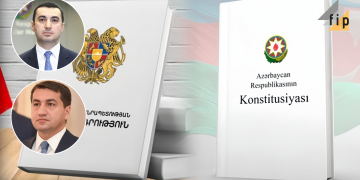At the previous session of the government on September 10, only 4 out of 40 issues included in the agenda were reported. Such an approach to holding sessions is always in the center of media attention. At the same time, Prime Minister Nikol Pashinyan regularly emphasizes the importance of transparency in the work of the government.
Even before the 2018 revolution, the ruling party had initiated a bill to hold government sessions behind closed doors. The head of the Republican government, Karen Karapetyan, justified the bill by the circumstance that the executive staff was constrained to express their views. According to the bill, sessions were to be held in public only by a special decree of the government.
This bill was once the subject of serious criticism. However, after the revolution, this legislative initiative was repealed. “We are solving another issue, which caused a stir at the time. Do you remember that according to the law, the sessions are now closed, and the open sessions require a special decision? We are doing the opposite now, but, of course, there will be a need to hold closed sessions,” Prime Minister Pashinyan announced on November 15.
However, the new authorities adopted a new policy instead of holding the sessions behind closed doors. In particular, the number of reported issues has significantly decreased over the last two years. As of September 10, 2020, about 88% of the issues discussed during the year were included in the package of unreported issues.
In response to an inquiry from the Fact Investigation Platform, the Prime Minister’s Office informs that 1054 out of 1982 issues or 53% were not reported at government sessions in 2017. In 2018, unreported issues accounted for about 62% of the total.
Of the 1947 issues on the government agenda last year, 1401 or about 72% were not reported. Another 49 issues were submitted as confidential documents. Compared to 2017, the number of unreported issues increased by about 29%.
As of September 10, 2020, the share of unreported issues has sharply increased. Out of a total of 1388 issues included in the session agenda, only 164 or about 12% were discussed.
It should be added that the content of the issues included in the agenda of the government sessions (except for confidential issues) is published on e-gov.am one day before the session, but getting acquainted with them and studying them is quite time consuming, sometimes even difficult.
In conclusion, it should be noted that although the new Armenian authorities have canceled the bill of holding government sessions behind closed doors, today most of the issues on the agenda are not actually reported or discussed.
Ani Avetisyan

 FACTOMETER
FACTOMETER










